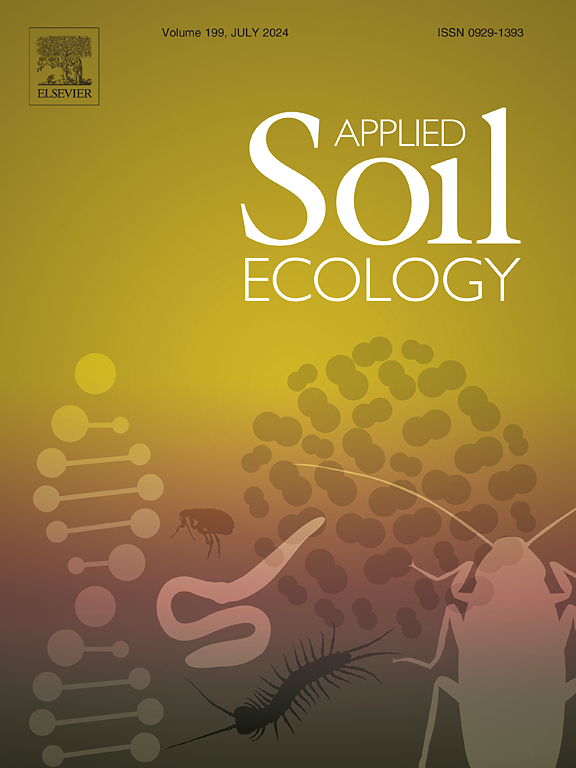Rhizosphere endophytes as allies in plant defense against heavy metals and organic pollutants in soil: Advances and applications
IF 4.8
2区 农林科学
Q1 SOIL SCIENCE
引用次数: 0
Abstract
Soil degradation caused by heavy metals and organic pollutants poses a critical global threat to environmental health and agricultural sustainability. Rhizosphere endophytes have garnered significant attention in their roles in enhancing agricultural productivity, promoting ecological sustainability, and serving as effective tools to support host plants in resisting or remediating soil contaminants. This review synthesizes current knowledge of the diversity, sources, and colonization mechanisms of rhizosphere endophytes. It highlights their dual roles in directly mitigating pollutant stress and indirectly enhancing plant resilience, while exploring their potential applications in environmental remediation. Rhizosphere endophytes are valuable sources of bioactive compounds and functional enzymes, secreting extracellular polymers and degradative enzymes to degrade organic pollutants or reduce the bioavailability of heavy metals. These microorganisms engage in co-metabolic processes with their hosts, enhancing plant antioxidant systems and mitigating the accumulation of organic pollutants and heavy metals in plant tissues. Furthermore, rhizosphere endophytes support host plants through indirect mechanisms by promoting plant growth, enhancing defenses against pathogens and pests, and modulating rhizosphere niches to recruit beneficial microbial communities, thereby enhancing plant resilience to environmental stress. Further research is necessary to improve the remediation efficiency of rhizosphere endophyte–plant systems, refine the selection of effective endophytes, and expand their ecological applications. This review underscores their ecological and biotechnological potential and outlines key research priorities to advance their use in sustainable soil remediation.

根际内生菌在植物防御土壤重金属和有机污染物中的同盟作用:进展与应用
重金属和有机污染物造成的土壤退化对环境健康和农业可持续性构成严重的全球威胁。根际内生菌在提高农业生产力、促进生态可持续性以及作为支持寄主植物抵抗或修复土壤污染物的有效工具方面的作用引起了人们的广泛关注。本文综述了根际内生菌的多样性、来源和定植机制。强调了它们在直接缓解污染物胁迫和间接增强植物恢复力方面的双重作用,并探讨了它们在环境修复中的潜在应用。根际内生菌是生物活性化合物和功能酶的宝贵来源,分泌胞外聚合物和降解酶来降解有机污染物或降低重金属的生物利用度。这些微生物与其宿主共同参与代谢过程,增强植物抗氧化系统,减轻有机污染物和重金属在植物组织中的积累。此外,根际内生菌通过间接机制支持寄主植物,通过促进植物生长,增强对病原体和害虫的防御,调节根际生态位招募有益微生物群落,从而增强植物对环境胁迫的抵御能力。为了提高根际内生菌-植物系统的修复效率,完善有效内生菌的选择,扩大其生态应用,还需要进一步的研究。本文强调了它们的生态和生物技术潜力,并概述了促进它们在可持续土壤修复中的应用的关键研究重点。
本文章由计算机程序翻译,如有差异,请以英文原文为准。
求助全文
约1分钟内获得全文
求助全文
来源期刊

Applied Soil Ecology
农林科学-土壤科学
CiteScore
9.70
自引率
4.20%
发文量
363
审稿时长
5.3 months
期刊介绍:
Applied Soil Ecology addresses the role of soil organisms and their interactions in relation to: sustainability and productivity, nutrient cycling and other soil processes, the maintenance of soil functions, the impact of human activities on soil ecosystems and bio(techno)logical control of soil-inhabiting pests, diseases and weeds.
 求助内容:
求助内容: 应助结果提醒方式:
应助结果提醒方式:


